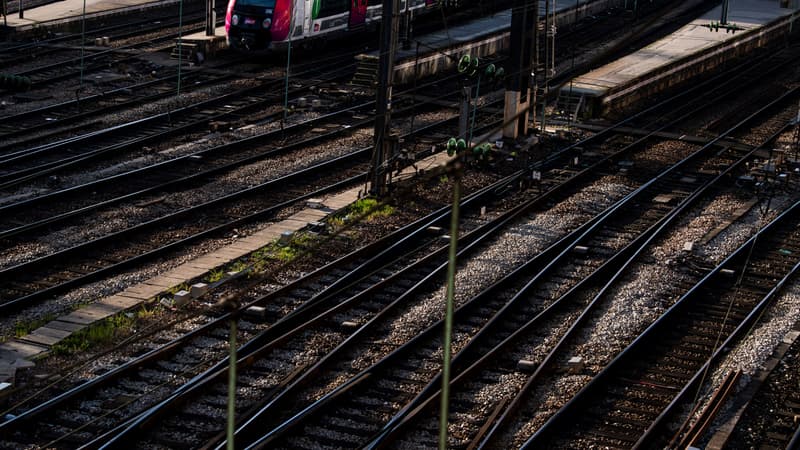The update and modernization of the national rail, road and river infrastructure need to invest around 3 billion additional euros per year during the 2026-2031 period, at least one billion so that the railroad avoids “a collapse”.
This is one of the conclusions of the former Secretary of State for the transport of Dominique Bussereau granted to the Minister of Transportation on Wednesday, Philippe Tabarot as part of Ambition France Transports, the conference on the financing of the transport infrastructure.
It has led to 14 proposals that should make it possible to face the announced investment wall and comply with a future law.
The SNCF expects a lot of this conference and this report because the needs are urgent and massive. It’s about finding additional billions of euros per year to keep the network alive and especially to make decisions now to be able to program the necessary work since 2027.
Good news for the company, Philippe Tabarot has confirmed “the arrow of all revenues of future highways concessions to transport infrastructure, estimated at the end of 2,500 million euros per year” and an “increase in investments for the regeneration of the rail network.”
“With respect to the rail network, the text will establish the objective of additional 1.5 billion euros per year in the law in the law since 2028,” he continues. What reassures the railway company.
An SNCF debt that would increase again?
Another good news, the creation of a temporary tax of 2% in certain train tickets, such as TGV, which could bring between 150 and 300 million euros per year, “no consensus” during the conference, specifies the rapporteur.
On the other hand, the SNCF runs the risk of enclosing the teeth in front of this track: therefore, the SNCF is suggested to use the loan to finance a part of the investment needs, “promptly and limited so as not to degrade the debt rates of the company”, and sell certain assets, including real estate.
The sanitation of the financial situation of the SNCF is one of the pride of Jean-Pierre Farandou, its president. The group shows four consecutive beneficiaries and a net debt of the “controlled” group to 24.7 billion euros in 2024, or 3.6 times the EBITDA.
It is very likely that the company did not expect this type of proposal that runs the risk of weakening a balance still fragile and threatened by the competition.
However, the report offers other clues (which are not only aimed at the rail), while they expect to recover part of the unexpected gain of highways concessions that will not arrive before 2030.
The rapporteur advises significantly attach more resources, such as a broader part of the ICT or the solidarity tax in the plane tickets, to the financing of the French formation inference (AFIT), while they are still in most of the state budget.
In addition, the gradual abolition of the reduced fuel tax rate (TICPE) granted to road carriers would generate around 1.2 billion euros per year by 2030, specifies the report.
Regional ecotax to load heavy goods vehicles
It is also proposed to facilitate the return of the regional ecotax, which charges foreign heavyweights using certain highly frequented road networks, a track also mentioned by the SNCF.
The report also recommends increasing cars taxes, such as the Regional Tax on Registration Certificates, now limited to 60 euros. An increase in an amount of 10 euros per certificate would generate 380 million euros.
Lowering the threshold of penalty to vehicles with a weight of 1.5 to 1.4 tons would make it possible to bring 400 million euros per year of additional income.
The report also offers the creation of a home delivery tax in urban areas, which would be sitting in the billing of the largest commercial companies and could generate between 50 and 200 million euros.
Source: BFM TV


